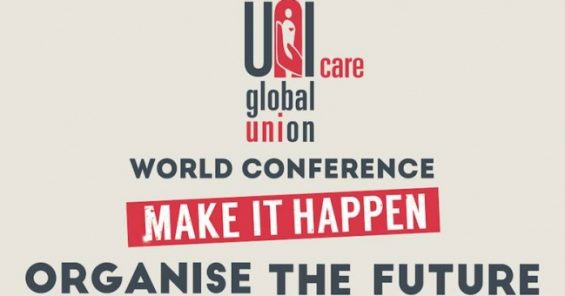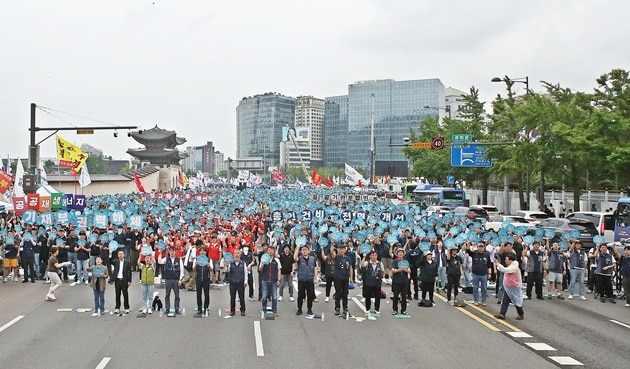The 2nd UNICARE World Conference opened in Rome promising to build on the big successes of the past 4 years. Over 130 trade unionists and workers from the Care sector met in Rome to plot the next steps forward for a sector which continues to grow.
After the inaugural Conference of 2015 in Buenos Aires, UNICARE has gone from strength to strength, organizing workers in one of the most rapidly growing sectors in the world. Unions are playing a key role in making sure that this sector does not continue pushing down wages and working conditions. UNICARE has kept its promises on the ambitious plans put forward in 2015 – defending workers’ rights, winning global framework agreements and establishing global social dialogue with multinationals companies. The sector has grown from 50 unions to almost 100 and now represents over 2 million care workers, a huge increase from 600,000 in 2016.
UNI affiliates are making it happen in the care sector all over the world. In Austria, care workers are on strike for a 35-hour week and a pay rise. In Poland and in the Czech Republic, workers have organized the first private care union in the country. In Argentina, FATSA is the largest provider of training for healthcare professionals and a role model for care unions around the world. Nepalese trade unions have successfully organized 7 new hospitals. According to the OECD, in 2050 there will be over 2.4 billion elderly people in the world, which means that the expansion and growth of care jobs will continue. UNICARE is determined to ensure that these new jobs will be decent and qualified trade union jobs, which are covered by collective bargaining agreements.”
“You inspire all of us. The WHO predicts 100 million new jobs in this sector in the coming years so this is a sector with huge potential”, said UNI Deputy General Secretary Alke Boessiger.
“We want a seat at the table to ensure that the digital tools are used to help workers rather than hinder them. We want a sector which is not subjected to the poor pay and conditions that are common in female dominated industries.”
UNI Europa Regional Secretary Oliver Roethig urged unions to prepare for the digital revolution sweeping the Care sector. “Care is a human business, and we believe it needs a human face. We cannot let multinationals pursue a race to the bottom where efficiency is king, and workers are exploited.”
Frederique Favraud, the Vice-President of UNICARE kicked off the conference with a call for unity and collaboration. “We have an ambitious programme and we are fighting for each other around the world,” said Favraud. “We must continue with determination and conviction on the path we’ve set out to challenge multinationals like Orpea. We are masters of our own fate and together we can bring positive change to this growing sector.”
Pierangelo Raineri, General Secretary of FIST-CISL said that UNI was integral in leading the fight for multinationals to respect their workers. “In an increasingly globalised world, international solidarity is becoming more and more important. The huge growth in our UNICARE sector shows that we can organise the future and make a difference for our members.”
Director of UNICARE Adrian Durtschi finished the opening day of conference with a galvanizing call to UNICARE affiliates, saying, “When we join together with a common strategy and a common goal, we’re able to challenge multinationals and change the world. Organise, organise, organise, and together we can make it happen.”
The conference was in full support of the general strike in Belgium and the workers’ demands for a fair pay rise, including that of care workers.
The UNICARE World Conference is taking place from the 13-15 February.


